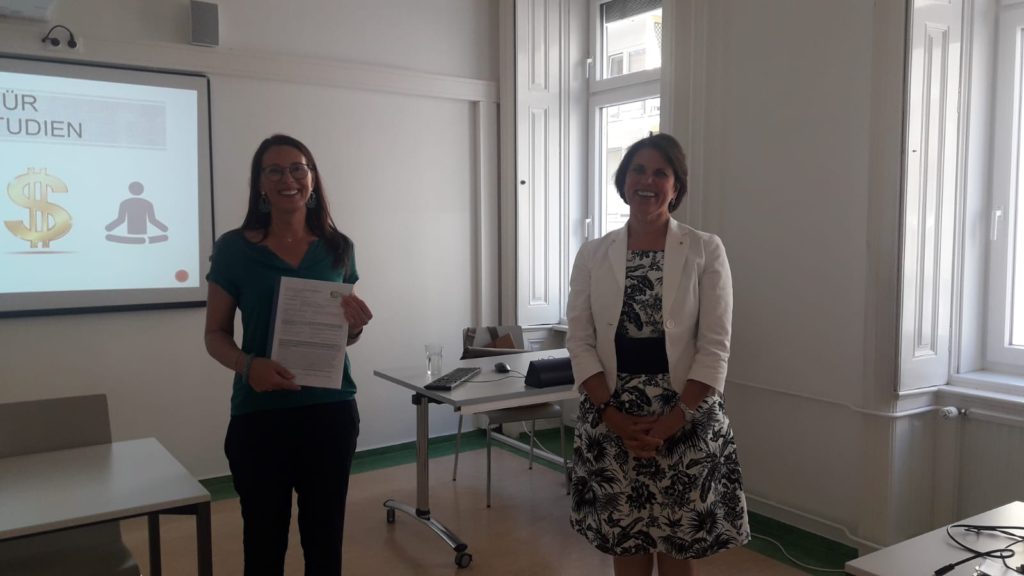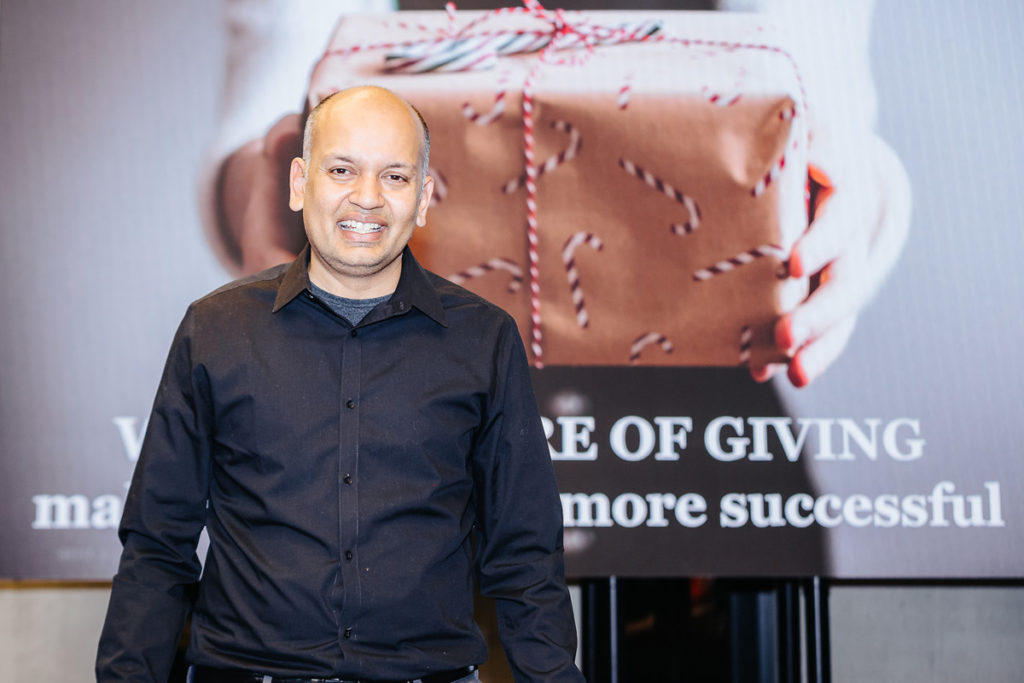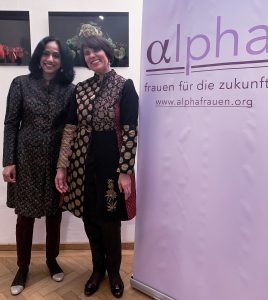Can understanding your mind, body and emotions and your patterns of behaviour lead to less reactivity and more conscious action? Resilience is cultivated with various methods. One effective way of dealing with challenging times is through self-knowledge. This was enabled with a second group of interested participants at a hybrid workshop at Vienna‘s University of Economics and Business.

The current pandemic with its vast ranging impact on the business, social, emotional, health, psychological and behavioral fabric of the planet has kept the world on alert for almost two years. With nearly five million deaths worldwide, waves of new infections sweeping us from one lockdown to the next, dealing with COVID-19 is a challenge for each one of us.
At this critical time, understanding the mind and our emotions are more important than ever before. Numerous studies during the corona pandemic suggest that meditation helps to better deal with difficult emotions, like anger, fear and anxiety during disruptive times and anticipate stress before it arises. A balanced mind leads to more conscious decision-making, higher social competence, and resilience. Training the mind fosters clarity, focus, emotional und social intelligence. Just a short period of stillness recharges our brains to deal with the immense sources of distraction, which have multiplied, as the demand for sensational news grows.
Increased self-knowledge through mind leadership
In order to build resilience and thus better deal with the crisis, the HR department of the WU Wien offered its employees a five-part seminar on mind leadership training. The seminar introduced key elements for self-understanding and management. An additional aspect was the application of the methods presented, for dealing with the overlapping hybrid world of work, privacy, and leisure.
Step by step through the seminar, participants were made aware of the role of focus and distraction in the work process, the connection between our body, mind and emotional world, the neurophysiology behind changing attitudes and mindset, and the nature of the mind and thought flow. Stress and its effects on the body and applying insights to recognizing stressors and stress reactions, addressing them whilst they are arising, was a core element of the seminar. How do we recognize the gap between trigger and response and what does the breath have to do with this vital ability? The role of effective communication, the world of emotions and experiencing them in the body, empathy and compassion were dealt with in the context of organizations and outcomes. Bringing awareness to our interdependence and connectedness enables an understanding of the individual and collective roles we play.
The fifteen-hour seminar conducted in English, constituted theoretical input, science-based results, specific guided meditations, and interactions between the participants in exercises tailor-made for each topic. The encouragement of active discussion and input greatly enriched the workshop. In the course of the ten-week course, the group evolved into a container for insight and personal development. The use of a lively mix of methods which work both in-person and online, kept interest active and alive.
Skills and working practices for a new hybrid world of work
What were some of the practical questions, the seminar sought to answer?
What skills do I need to survive in a hybrid working world shaped by digitization? How do I deal with difficult emotions? How does an emotion show itself in the body? What are the effects of acute and chronic stress in the body and how do I deal with stress triggers and stress reactions from a mindfulness perspective? How does the neurophysiology of the brain permit us to learn new attitudes and to change our mindset? Why are empathy and compassion in the professional context a guarantee for better cooperation and team cohesion? Why does mindful communication mean present, compassionate listening, and hearing? What is a negativity bias and how can it be addressed? How do I integrate the positive into life at work?
The lockdown szenario at the end of 2021, became a test lab for the practicability and effectiveness of many skills learned, as we continue to shift between off- and online working modes which are here to stay.
In effect, this seminar became a „life changing“ experience.
Voices of participants
M.M. wrote: “Thank you so much for this life-changing workshop! There have been so many valuable learnings for me and I can really say that the techniques have helped me to experience some situations more consciously (presence and agency) and to be able to deal with negative feelings much better – meaning that they do not overwhelm me and I do not automatically identify with them….. I do manage to solely focus on my breath from time to time and it makes a huge difference!”
“I learned once again to be more and more in the “here and now”. I try to focus my attention on a task that I am doing right now and not, as usual, to think about several things at the same time or even what is still to be done, what I still have to do. Through this approach, the activity progresses much faster and more effectively when I am focused”, commented Marianne Fiala on her experience of the seminar. “Especially the meditations were good for me..the arrival meditation – which helped me a lot when I came to the seminar, work stressed and had to concentrate on the topic. To have a few minutes, to focus, enabled me to concentrate much better on the lecture. Or the body scan, my favorite, or a breath mediation or a Metta or …”
Self-generated insights generate individual resilience
With the understanding of how the brain and nervous systems function when under stress, and the interplay between body, mind and emotions, observing oneself was the first step towards a new awareness. As William James (1842 – 1910), Harvard Professor for Psychology and Philosophy said: “The greatest revolution of our generation is the discovery that human beings, by changing the inner attitudes of their minds, can change the outer aspects of their lives“.
The choice is ours.
A big thank you to the Personnel Development and Planning Office
Thank you to an open-minded Alexander Mingst from the Personnel Development and Planning Office who promoted an innovative multi-facetted approach to building resilience by applying inherent skills in dealing with challenges and crisis.
For me personally this seminar was part of „giving back“ many decades later, as an alumni of the Vienna University of Economics and Business.













